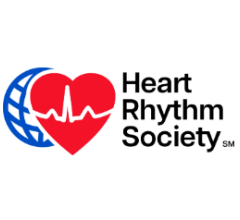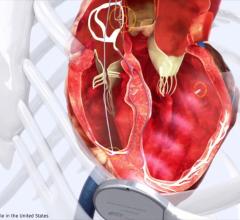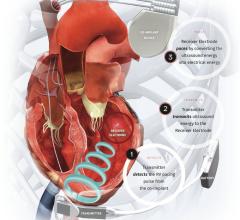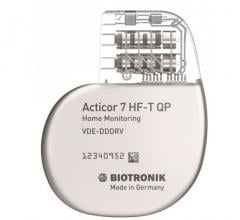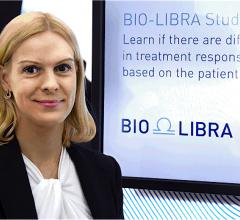June 25, 2009 – Today, St. Jude Medical Inc. and Medtronic Inc. both commended the efforts of investigators in the Multicenter Automatic Defibrillator Implantation Trial with Cardiac Resynchronization Therapy (MADIT-CRT). Early trial results released this week indicate early intervention with CRT-D therapy can slow a patient’s progression from early stage heart failure (New York Heart Association class I-II) to late stage heart failure (NYHA class III-IV).
The trial demonstrated cardiac resynchronization therapy is associated with a significant 29 percent reduction in death or heart failure interventions when compared to traditional implantable cardioverter defibrillator (ICD) therapy in high risk, asymptomatic or mildly symptomatic class I and II patients.
Preliminary MADIT-CRT results reinforce those originally shown in the Medtronic-sponsored REVERSE trial at 24 months. REVERSE was the first, large scale, global, randomized, double-blind study to evaluate CRT in previously symptomatic NYHA class I and mildly symptomatic NYHA class II heart failure patients with decreased ejection fraction and prolonged QRS duration. Following the trial's positive 24-month results, Medtronic recently announced its intention to pursue FDA approval for CRT to treat certain mildly symptomatic heart failure patients.
This achievement by the University of Rochester has implications for the industry as a whole, and Medtronic and St. Jude Medical welcomed the added evidence for CRT effectiveness in this heart failure patient population. Medtronic said the MADIT-CRT data follows the recent presentation of 24-month data from REVERSE, which showed a 62 percent reduction in the risk of first heart failure hospitalization or death and improved clinical outcomes. The data also precedes anticipated results from the Medtronic-supported RAFT (Resynchronization/Defibrillation in Ambulatory Heart Failure Trial) study in Canada, which is evaluating the impact of CRT on all-cause mortality and heart failure hospitalization in NYHA class II patients.
“The MADIT-CRT trial has shown that if intervention is conducted early enough, the outcome for the patient will be better over time,” said Mark Carlson, M.D., chief medical officer of the cardiac rhythm management division of St. Jude Medical. “The next step for our industry is to ensure physicians and patients are aware of the clinically proven effectiveness of this treatment and that they benefit from the currently available cardiac resynchronization therapies.”
For more information: www.sjm.com, www.medtronic.com


 July 21, 2025
July 21, 2025 
